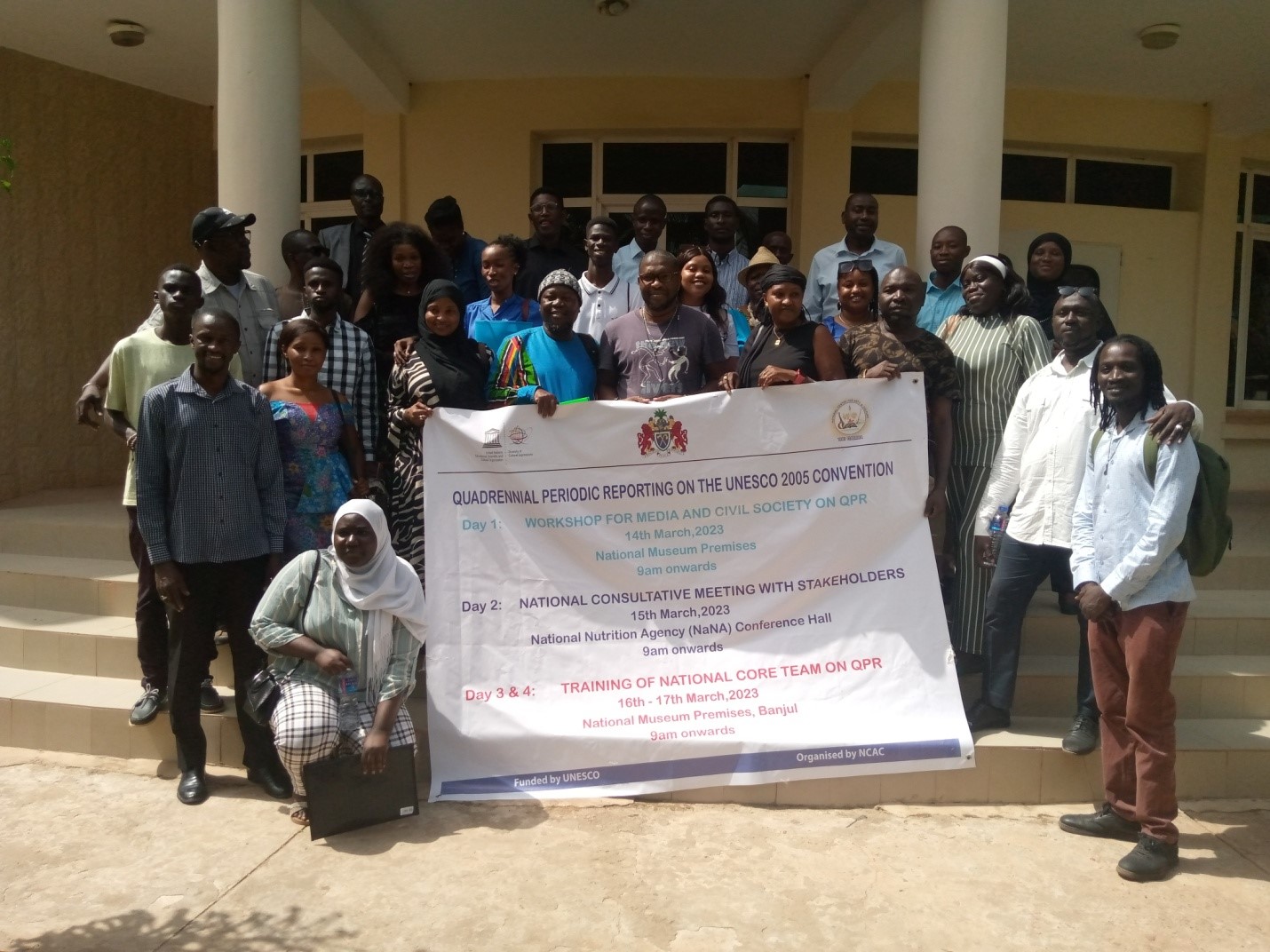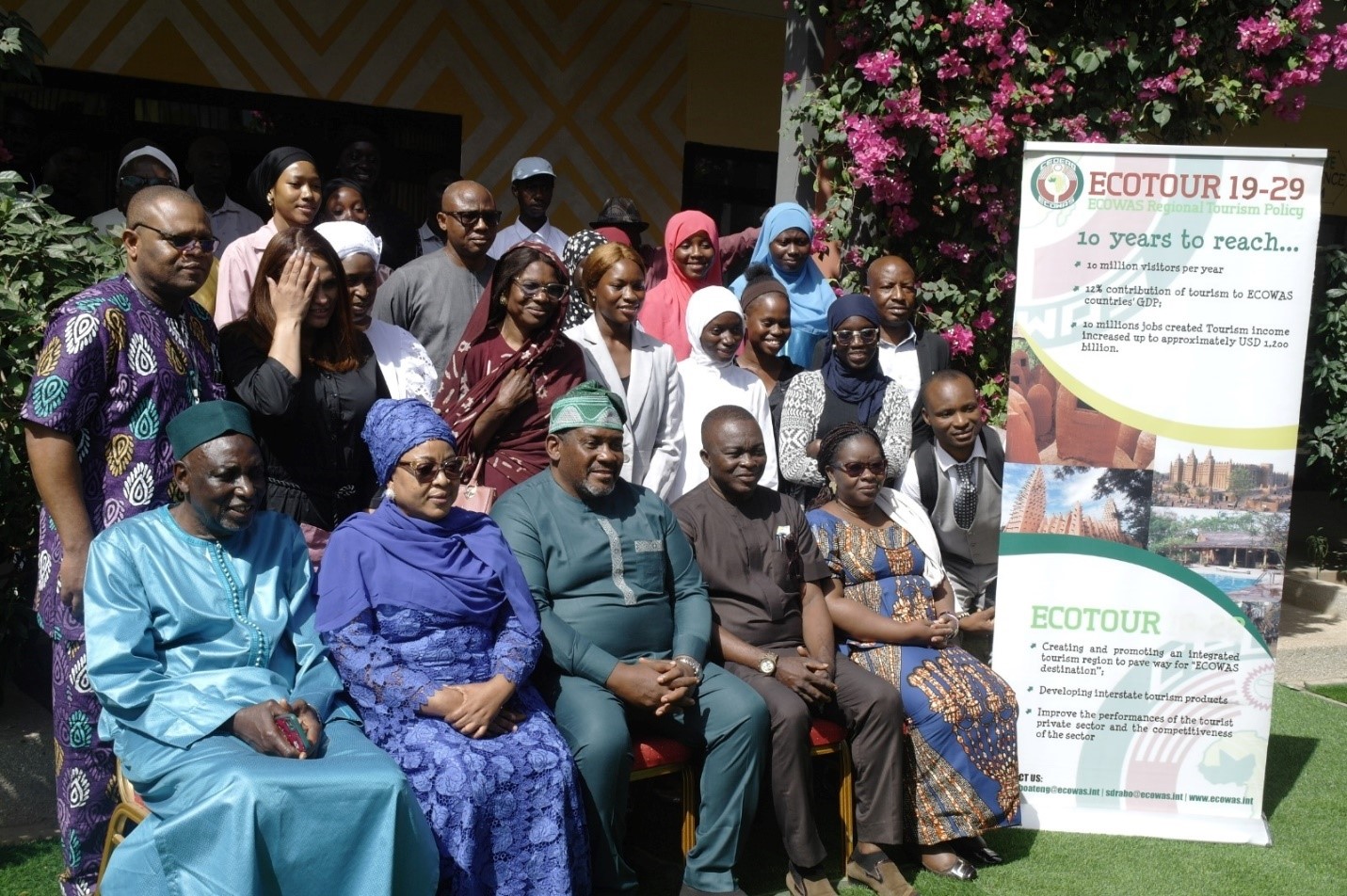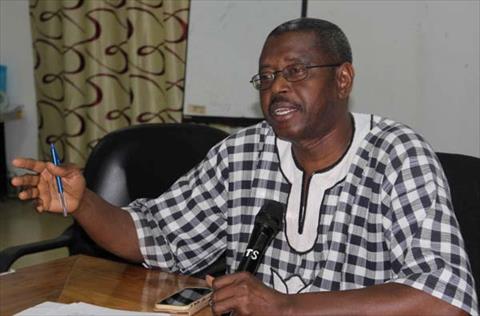By Yunus S Saliu
After four years of its first report, the National Center for Arts and Culture (NCAC) on Monday embarked on the 2005 UNESCO Convention Quadrennial Periodic Reporting (QPR) on the protection and promotion of the diversity of cultural expressions for the second time.
After the ratification of the Convention in 2011, The Gambia, for the first time, in 2019 successfully reported on the Convention, the achievement from the report has helped the center to benefit from the UNESCO-Aschberg Projects.
The ongoing QPR exercise started on Tuesday and will end on Friday brought together different stakeholders which include government representatives from different ministries and major public institutions; such as National Statistics Office, Civil, and media organizations among others.
Hassoum Ceesay, the Director General of NCAC expressed that it is the second reporting exercise of the 2005 UNESCO Convention of QPR by the Gambia on the protection and promotion of the diversity of cultural expressions spearheaded by the National Centre for Arts and Culture and funded by the UNESCO.
On this quadrennial periodic reporting, he explained, “there are three main activities involved that are meeting of the civil society and media; then the national stakeholders’ consultative meeting and the training of the core team that will help the NCAC to report and submit the Gambia report on the 30th of June 2023.”
The 2005 UNESCO Convention as explained by the Director General of NCAC is a convention meant to promote the arts which include the media, artistic, cultural rights, and freedoms – music, dance, literature, and so on.
“The Gambia acceded in 2011and in 2019 NCAC successfully reported on what the Gambia has done to uphold the provisions of the Conventions. It is now another four years down the line we are starting the new reporting circle whereby the country should complete and submit the report on the activities that have been done to uphold the tenets of the convention before the 30th of June, a reason why the UNESCO gave support with an international consultant Ojoma Ochai leading us with the stakeholders on the exercise,” he explained further.
More so, he said when the Gambia reported in 2019 the country was able to benefit from the UNESCO project called Aschberg project that just ended.
So far, with the Aschberg project, “we were able to draw and created a National Endowment Fund for the arts, secondly, we have been able to train 100 female artists on what will help make them better professionals. Thirdly, we have completed and published the first-ever study on the conditions of female artists in The Gambia, our successful reporting in 2019 paid good dividends.”
He, therefore, thanked UNESCO for their support while thanking all the stakeholders involved for their important roles in this QPR exercise.





